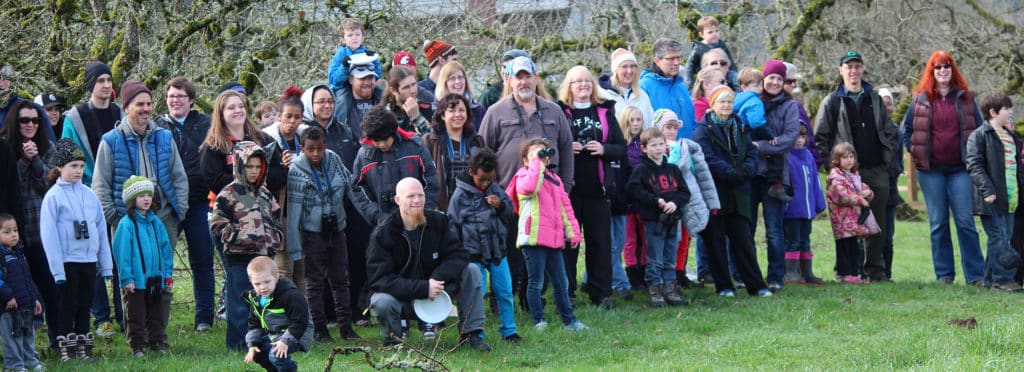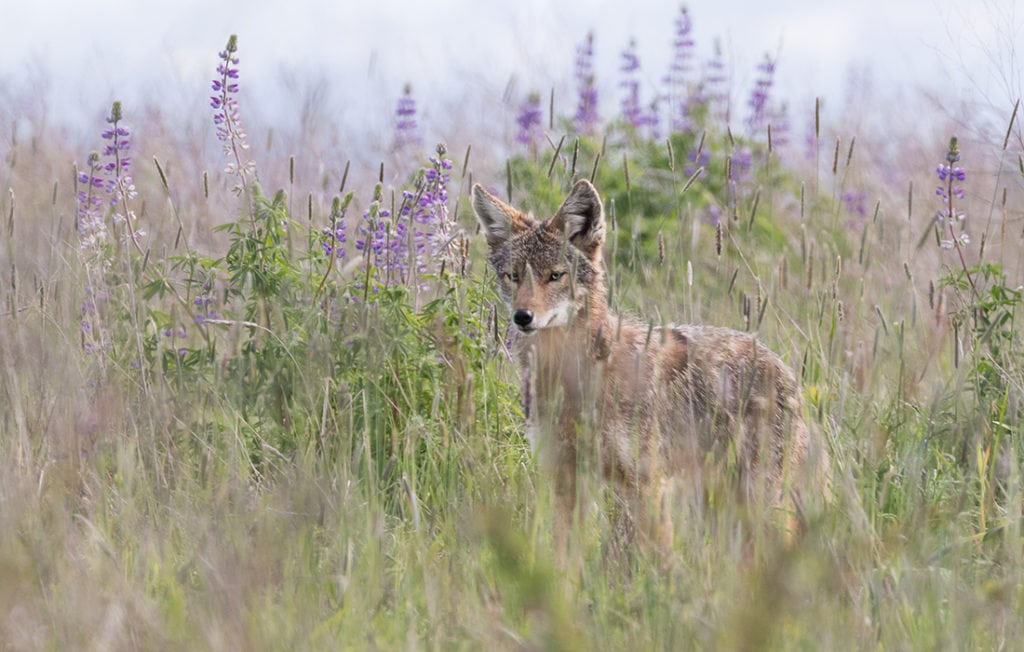
Both had neurological symptoms like leg paralysis that suggested the herons were suffering from botulism poisoning. It’s very unusual to see avian botulism during winter months in the Pacific Northwest, but not impossible.
The birds were found near Smith and Bybee Lakes in north Portland, an area that experienced a small botulism outbreak this fall. According to Bird Alliance of Oregon veterinarian Deb Sheaffer, some of the toxin could still have been present in invertebrates the birds ate recently.
Deb wasn’t able to make a definite diagnosis – botulism tests require a large amount of blood, too much to take from a live bird – so the care center treated the herons based on their symptoms. This means staff and volunteers mostly relied on fluid therapy and force feeding, the same methods used with botulism cases.
The herons’ symptoms cleared up after a week or two of treatment, and they were moved to a large flight cage so we could check their flight ability. Both quickly took to the wing, a sign that it was time for the birds to head home. A few days ago, a volunteer drove the herons back to north Portland at twilight and released them into the wild.




